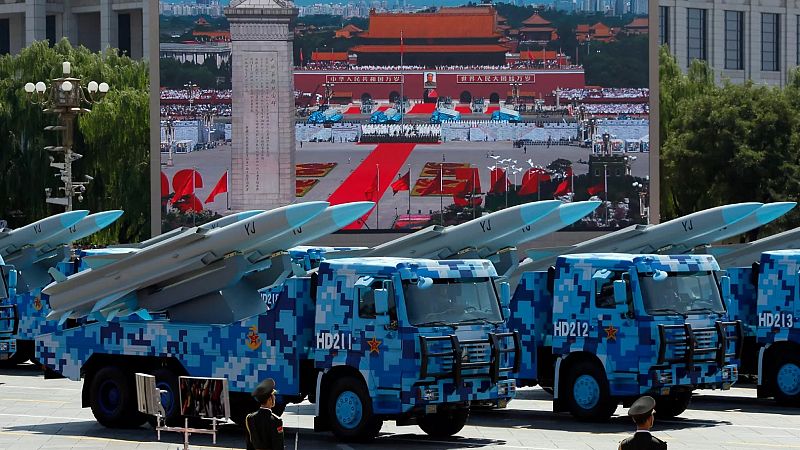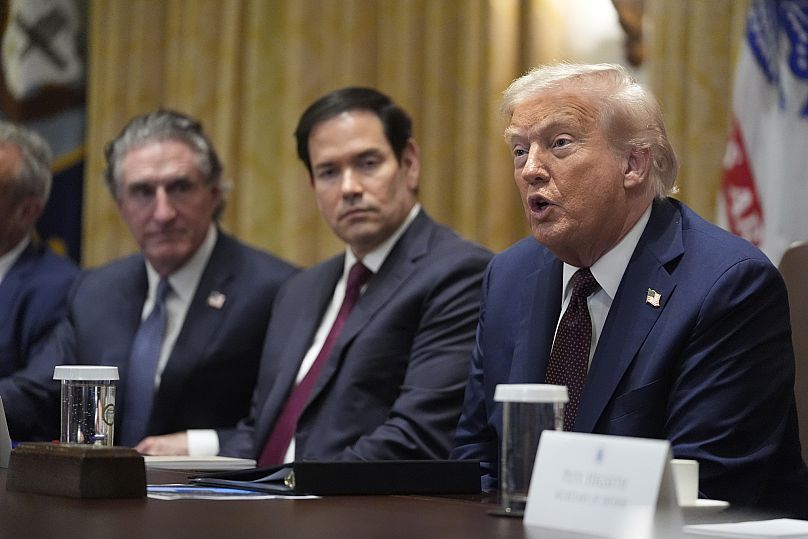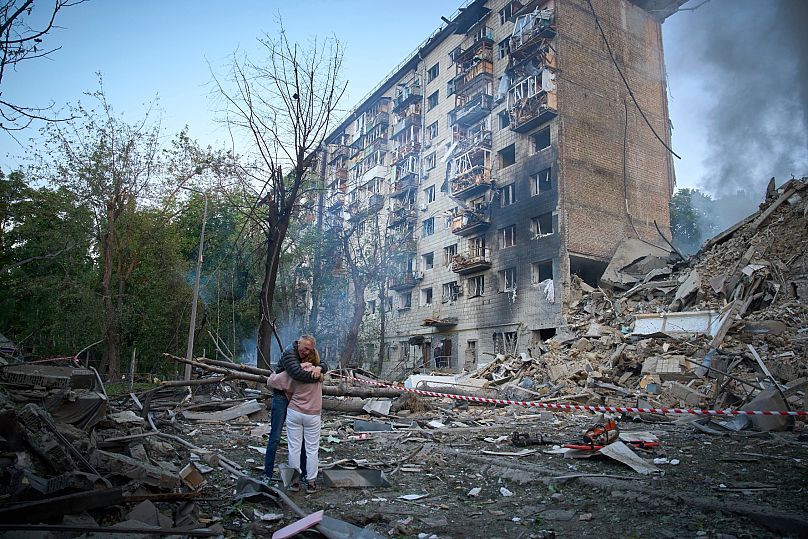China rejects joining Trump-proposed denuclearisation talks with US and Russia

China has said it will not take part in denuclearisation talks with the United States and Russia, after US President Donald Trump said he hoped Beijing would join the negotiations.
"I think the denuclearisation is ... a big aim. But Russia's willing to do it and I think China is going to be willing to do it too," Trump said on Monday, in a bid to denuclearise both countries.
"We can't let nuclear weapons proliferate. We have to stop nuclear weapons."
A spokesperson for China's foreign ministry said on Wednesday it was "neither reasonable nor realistic" to expect Beijing to participate in the discussions.
"China and the United States are not at the same level at all in terms of nuclear capabilities. The countries with the largest nuclear arsenal should earnestly fulfil their special and primary responsibility for nuclear disarmament," Guo Jiakun said.
Beijing says it is in favour of disarmament in principle, but has regularly rejected overtures from Washington to join talks with Moscow to reduce their nuclear arsenals.
Beijing also said its nuclear forces are maintained "at the minimum level required for national security and does not engage in an arms race with any country."
According to data by the Stockholm International Peace Research Institute in 2024, the United States has 3,708 nuclear warheads while Russia holds 4,380.
China has 500, with France (290) and the UK (225) behind the trio.
The US and Russia between them hold almost 90% of the world's nuclear arsenal, but Moscow withdrew from the last remaining arms control treaty in 2023.
In 2023, Russian President Vladimir Putin formally rescinded Russia's ratification of the Comprehensive Nuclear Test Ban Treaty (CTBT), saying the move would "mirror" Washington's stance, which signed but never ratified it.
The CTBT, which was adopted in 1996, bans all nuclear explosions anywhere in the world, but it has never been fully implemented.
It was never formally ratified by China, North Korea, India, Pakistan, Israel, Egypt or Iran.
Russia's ongoing full-scale invasion of Ukraine has raised the spectre of nuclear warfare again.
Last year, Putin signed a revised nuclear doctrine lowering the threshold for the use of nuclear weapons.
The document states that "aggression of any state from a military coalition (bloc, alliance) against the Russian Federation and (or) its allies will be considered as aggression of this coalition (bloc, alliance)."
It also says that "deterrence of aggression is ensured by the totality of the military power of the Russian Federation, including nuclear weapons."
And earlier this month, Putin said that Moscow has started production of its newest hypersonic Oreshnik missiles and reaffirmed plans to deploy them to Belarus later this year.
The Oresnik can carry nuclear warheads, according to the Kremlin.
Today



